Erdogan announces 4-way summit on Syria’s Idlib
Turkey’s president says his country is to join a quadrilateral meeting with Russia, Germany, and France to address the situation in the northwestern Syrian province of Idlib, where Damascus’ anti-terror advances have posed a threat to the Turkish military presence.
"On March 5, we will meet with [Russian President Vladimir] Putin, [French President Emanuel] Macron, and [German Chancellor Angela] Merkel, and we will talk about these again," Turkish President Recep Tayyip Erdogan was quoted by Reuters as saying on Saturday, referring to previous discussions with the heads of state concerning Idlib.
The province contains the largest remaining concentrations of Takfiri terrorists, who have fled there since September 2015, when Russia began lending airpower to Syria’s counter-terrorism operations.
Backed by the Russian aerial support, the Syrian military has enhanced its anti-terror efforts in Idlib over the past months.
The advances have liberated many areas across Idlib, including some hosting Turkish observation posts. Turkey began setting up the facilities in the province in 2018, when it agreed to cooperate with Russia to contain the situation in the vicinity of the Turkish border.
Turkey claims that more than a dozen of its troops have died during clashes with the Syrian forces. It has been sending huge reinforcements to Idlib, has threatened an “imminent” assault on the Syrian military, and asked Russia to “stop” the Syrian gains.
Erdogan suggested that Ankara did not intend to change its behavior in the province by saying, "I expressed our determination on [Idlib] clearly to Putin yesterday. I also mentioned it to Merkel and Macron."
Turkey has, on many occasions, been implicated in supporting anti-Syria violence, including by providing safe passage to Syria-headed terrorists, since 2011, when the Arab country fell victim to rampant militancy and terrorism.
Currently, it is widely known to be backing a number of anti-Damascus militant groups in Idlib.
Syria, which has liberated the biggest part of the territory it had lost after the outbreak, has, however, vowed to bring every inch of its soil back under sovereign control. Damascus has, accordingly, said it reserved the right to take on any encroachment by either Turkish forces or Ankara’s proxies.
Speaking with Putin on the phone on Friday, Erdogan repeated the demand that Moscow should prevent Damascus’ march of liberation in Idlib.
The Russian president, however, told his Turkish counterpart that he was "seriously concerned" by the "aggressive actions" of the Takfiri terrorists in the province.
Separately, the United Nations suggested that the Tal Abyad border crossing between Syria and Turkey could be used to deliver aid to civilians in northeastern Syria following the closure of the al-Yarubiyah crossing between Syrian and Iraq.
"If viable alternatives to al-Yarubiyah are not found for medical items, the gap between the humanitarian response and humanitarian needs will increase," UN Secretary-General Antonio Guterres wrote in his report to the UN Security Council, seen by Reuters.
Last month, Russia’s UN Ambassador Vassily Nebenzia dismissed concerns about closing of al-Yarubiyah because he said the situation on the ground had changed and aid was being delivered to the northeast from within Syria.
"From a security and logistical perspective, in the current context, the Tal Abyad border crossing would constitute the most feasible alternative," he said.
The Turkish military began establishing an aggressive military presence around Tal Abyad in 2016, when it invaded Syria’s northwest to push back against the Kurdish militants, whom the Turkish state says are linked with anti-Ankara separatists.
Fuel-smuggling ship seized in Persian Gulf waters
UN warns Gaza children at risk from unexploded Israeli bombs
Israel not willing to implement ceasefire deal: Hamas official
Houthi: Israel has killed thousands of Muslim women in Palestine
UNIFIL says Israeli forces fired on peacekeepers in Lebanon
US set to demand five-years of social media data from all foreign visitors
VIDEO | IRGC carries out large-scale cloud seeding operation
VIDEO | Press TV's news headlines


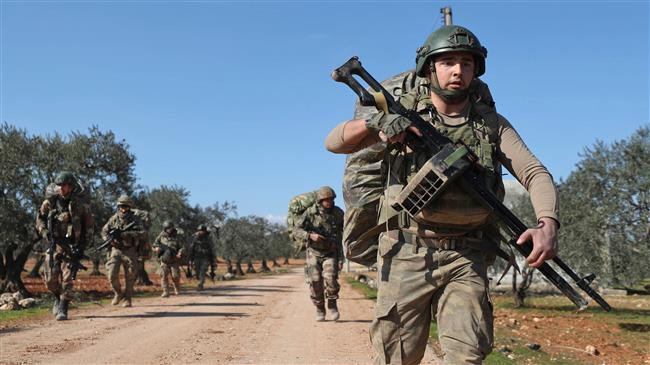


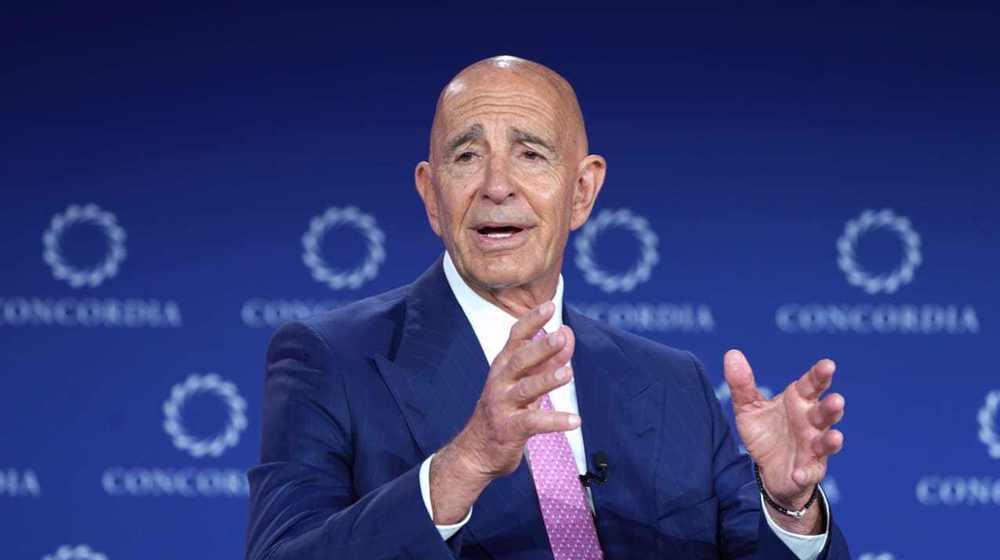
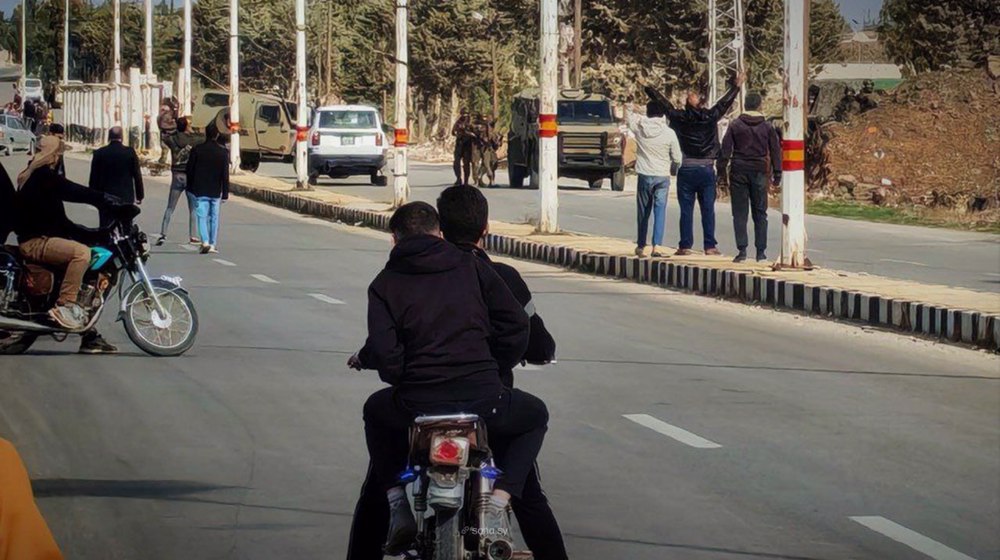




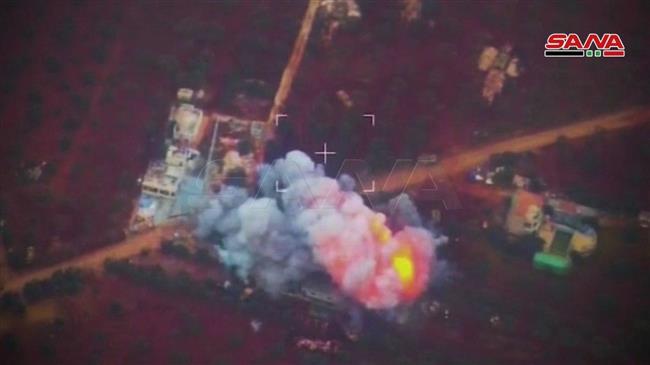
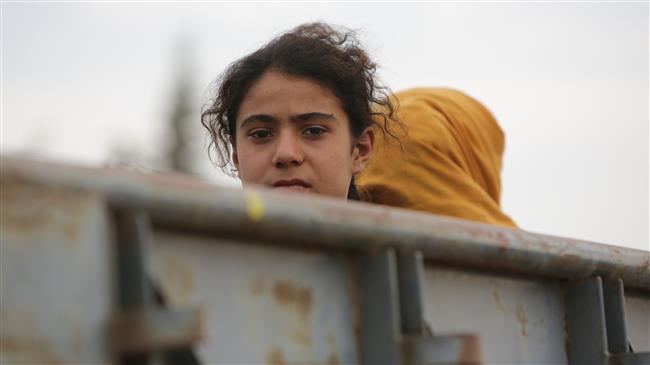
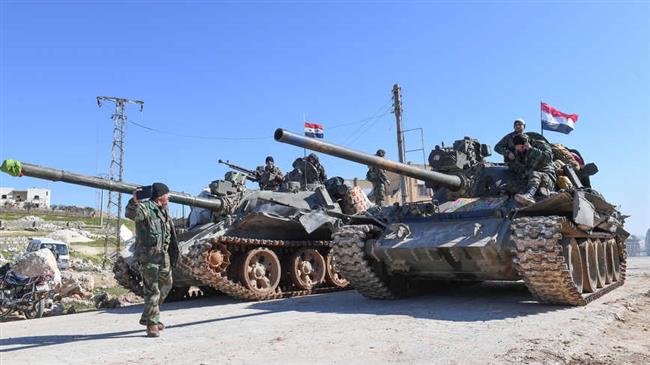

 This makes it easy to access the Press TV website
This makes it easy to access the Press TV website